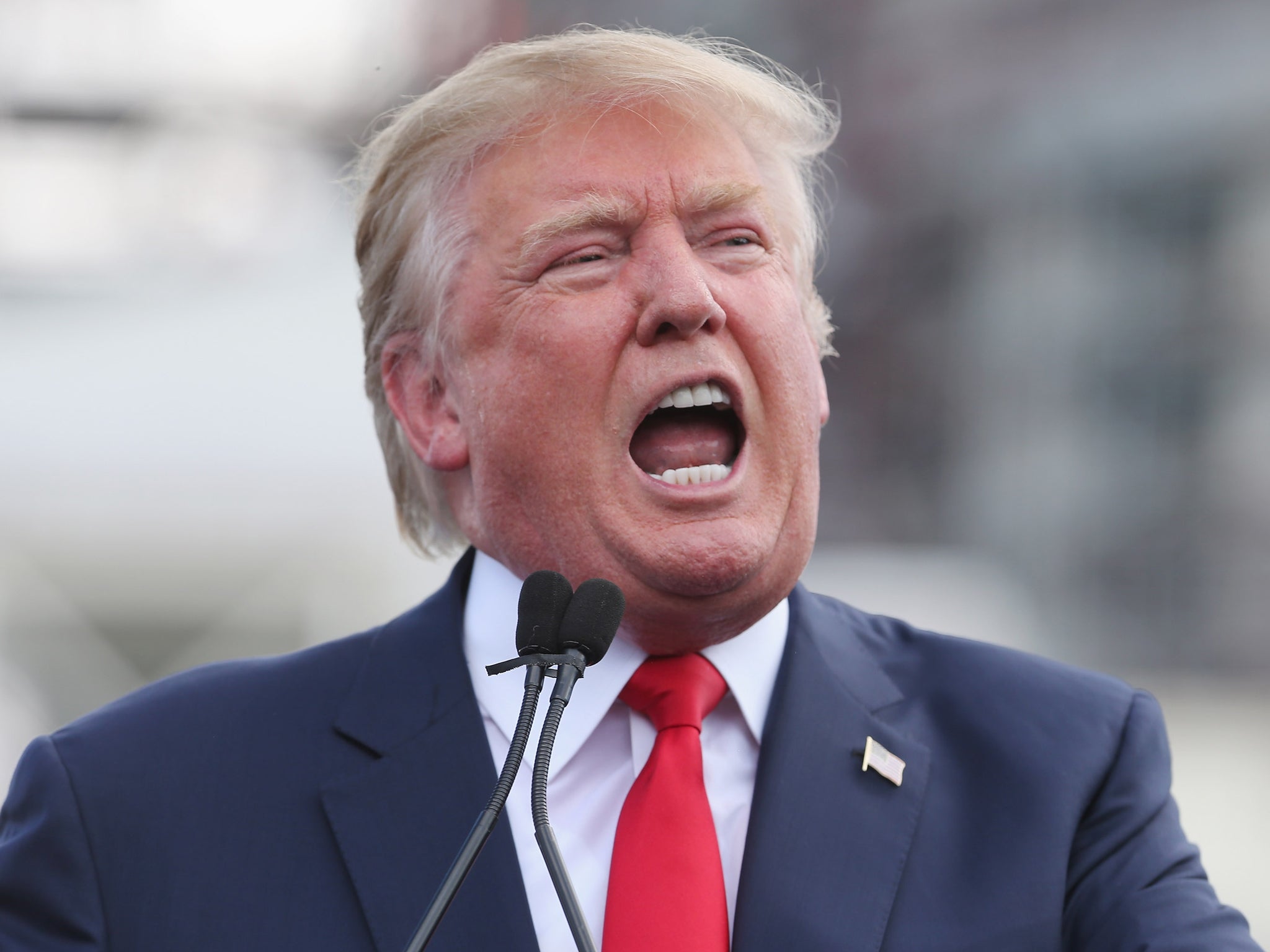Theresa May is about to meet Donald Trump for the first time, and this is what she needs to say
May should spell out to Trump the dangers of him turning his back on Nato. It would only encourage Putin to launch another military intervention – probably in the Baltic states, where UK troops could find themselves in the front line


Your support helps us to tell the story
From reproductive rights to climate change to Big Tech, The Independent is on the ground when the story is developing. Whether it's investigating the financials of Elon Musk's pro-Trump PAC or producing our latest documentary, 'The A Word', which shines a light on the American women fighting for reproductive rights, we know how important it is to parse out the facts from the messaging.
At such a critical moment in US history, we need reporters on the ground. Your donation allows us to keep sending journalists to speak to both sides of the story.
The Independent is trusted by Americans across the entire political spectrum. And unlike many other quality news outlets, we choose not to lock Americans out of our reporting and analysis with paywalls. We believe quality journalism should be available to everyone, paid for by those who can afford it.
Your support makes all the difference.“The special relationship is stronger than ever,” Donald Trump and Theresa May will declare when they meet in Washington next month. How do I know? Because such meetings are carefully choreographed in advance; even the election of a highly unpredictable US president will not alter that script.
Whenever a UK prime minister meets a US president, he or she looks needy and desperate to get a public re-statement of the much-vaunted special relationship. American officials and politicians are bemused by it, but play along. It costs nothing to spout this outdated mantra, even if the most important player on the European stage is now the German Chancellor – which will be cemented by Brexit.
I have seen this show many times on trips to Washington with the last four prime ministers. Trump will happily talk about his Scottish mother, his golf courses and his desire to meet the Queen, and May will highlight the historic ties that bind the two countries. They will be happy to be seen as the new “Ronnie and Maggie” – Reagan and Thatcher. When they face the TV cameras, the two leaders will prefer to stick to such trivia rather than disclose private discussions about the threats facing the world at a very dangerous time.
May’s top priority – even if it is not done in public – should be to urge Trump not to cosy up to Vladimir Putin, and to resist the temptation to form an alliance of two strongmen that would mean ignoring Russia’s acts of aggression, cyber-terrorism and propping up of Syria’s Bashar al-Assad.
The Prime Minister could soon look isolated on Russia in the UN Security Council and over international sanctions imposed over Ukraine. France looks certain to elect a pro-Russian president this spring. Putin must sing “Everything’s going my way” in the bath. But May’s potential isolation offers her a chance to show strength by standing up to Moscow – even if it offends Trump.
May should spell out to Trump the dangers of him turning his back on Nato. It would only encourage Putin to launch another military intervention – probably in the Baltic states, where UK troops could find themselves in the front line.
As home secretary, May trusted the intelligence services and we can guess that she will share the CIA’s view that Russians hacked the Democratic Party’s emails to influence the US election. That is too close to home for Trump, who is in denial, accusing the spooks of “politicising” intelligence when that is precisely what he is doing. May should still tell him that the Russians have crossed a very important line by threatening the democratic process.
She should also tell him not to walk away from the crucial Paris agreement on climate change.
Will May dare to have such a shopping list? The early signs are not great. Downing Street took the unusual step of criticising John Kerry, the US Secretary of State, for branding Benjamin Netanyahu’s government the “most right-wing coalition in Israeli history”. Would No 10 have done this if Trump had not won the election? Of course not. It was a naked attempt to curry favour with the incoming administration. May should urge Trump to be even-handed on the Israel-Palestine question.
She probably won’t. True, May’s task in building a relationship with Trump has been made harder by previous criticisms of him by her and her closest advisers when they thought he had zero chance of reaching the White House. I suspect that this elephant never forgets.
Another headache is the annoying presence of Nigel Farage, who seems to be enjoying an even higher profile since allegedly standing down as Ukip leader. He will embarrass her for the third time since Trump’s win by attending the inauguration of his soulmate on 20 January. And Farage will be the ghost at the feast when May dines with Trump.
The Prime Minister should ignore any advisers who argue that realpolitik means keeping her head down on Russia, the Middle East and climate change in order to keep her eye on the main prize – a US-UK trade deal, vital after Brexit. Trump’s shift from big multilateral to bilateral trade agreements should work to Britain’s advantage, and a deal would be to mutual benefit. May should be able to make progress on that while also standing tall against Putin.
Of course, a trade deal can be a top priority for May in US relations. But, for the world’s sake, it must not be her only priority.
Join our commenting forum
Join thought-provoking conversations, follow other Independent readers and see their replies
Comments